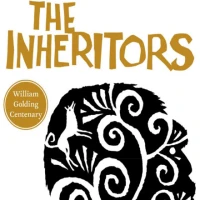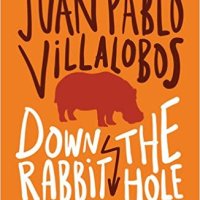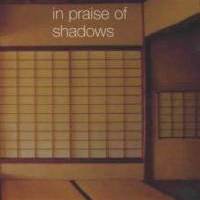Pig Earth, by John Berger
One of the blogs I follow is Kevinfromcanada. It’s a great blog, but recently Kevin (the blogger in question) did me a real favour. He started a comments thread in which you listed the last five books you’d read and he recommended a book to you that you hadn’t. My recommendation was John Berger’s Pig Earth.
John Berger was recently listed for the Booker for his novel From A to X. Nothing I read about that novel tempted me. His 1972 Booker winner, G, didn’t tempt me much either. In fact, it’s safe to say without Kevin’s suggestion I’d never have picked up a Berger.
We all only have so much time to read. We all have to decide what to read on the basis of partial information (a few reviews, maybe a recommendation, a browse in a shop, that sort of thing). Sometimes we make good choices, but we have to accept that sometimes we’ll make bad choices and when we choose not to read an author we may never know whether we made the right call. So it goes, given a finite lifespan what alternative is there?
So, it doesn’t bother me that I was so wrong about Berger. It doesn’t bother me that I found Pig Earth a subtle and beautiful work and that left to my own devices I’d never have read it. That’s the way it goes. We take decisions as best we can and we have to accept that sometimes we’ll get it wrong.
The happy part of the story is that Kevin didn’t get it wrong. His recommendation was spot on. Kevin, if you see this, thanks.
So, by this point some of you might be wondering what Pig Earth is and what it’s about. Well, the second of those questions is a lot easier to answer than the first.
What is Pig Earth? It’s an essay on the economic role of the peasant through history as viewed from a Marxist perspective. It’s also a short story collection, it’s several poems and it’s a number of sketches. It’s a description of the life of French peasants written (in 1979) as their way of life comes to an end.
What is Pig Earth about? It’s about the peasant’s experience and perspective. In that way it’s quite revolutionary. Most fiction (and most history) treats peasants as an other. As a group that protagonists may encounter or may witness but who have no uninterpreted voice of their own within the narrative. Berger uses his various forms (the essay, the poetry, the stories, the sketches) to bring out the peasant’s own voice.
I didn’t know when I started Pig Earth that it opened with a Marxist essay. If I had, I might well have skipped forward to the fiction. I’d have been wrong to (again). The essay is important. It sets the stage and explains how and why the peasant’s thinking differs from that of other classes. It explains why the peasant’s “economics are not those of the merchant, nor those of bourgois or Marxist political economy.”
The issue the peasant faces is that they alone of all elements of society produce that which they need to survive. Before they are permitted to enjoy what they produce however, other elements of society extract a surplus from them. In most societies the state extracts the surplus from the peasant in order to feed the manors, towns and cities without necessarily referencing how much surplus there actually is. Put another way, the state works out what it needs, and what it needs is deemed to be surplus even if that actually leaves the peasant without enough for his own survival.
This shapes the peasant’s perception of time and of justice. His goal is survival, but he is handicapped by the extraction from him of a surplus which may not in fact be spare. As Berger goes on to explain:
The peasant sees life as an interlude because of the dual contrary movement through time of his thoughts and feelings which in turn derives from the dual nature of the peasant economy. His dream is to return to a life that is not handicapped. His determination is to hand on the means of survival (if possible made more secure, compared to what he inherited) to his children. His ideals are located in the past; his obligations are to the future, which he himself will not live to see. After his death he will not be transported into the future – his notion of immortality is different: he will return to the past.
The essay then helps the reader understand the broader socioeconomics that shape the peasant’s world. The rest of the book explores that world. It also explores how that world is coming to an end as industrialisation and urbanisation slowly crowd the peasant out and render them unnecessary. After literally millennia suffering from the extraction of an often fictional surplus, the peasant is themselves becoming surplus.
By now this probably all sounds incredibly dreary and academic. It’s not. Once you’re into the stories the early work of engaging with the essay is fully rewarded. Berger has a spare and precise prose style which is a pleasure to read. He uses that economy of language to let the reader form their own impressions. As I read the stories and poems and looked at the drawings I began to notice patterns.
I noticed descriptions of winter that made me feel the cold as I read them in full summer heat. I noticed the constant nearness of death – several stories involve animals being slaughtered, and more than one involves people dying too (of old age or accidents).
I noticed that almost everyone in the stories was old, often in their 70s. I started to wonder where the younger people were, and then I realised that of course they were no longer there. They’d gone to the cities to find work and only returned for the occasional visit.
I noticed too that as the stories progressed the themes slowly shifted. Early on the stories describe the typical life of the farm. Later stories deal with taxes or the introduction of machinery. The final trio of connected stories address the growing importance of money in the peasant economy, where once it was near irrelevant. The changing themes of the stories itself tells the greater story of the eclipse of the peasant class.
Here’s an excerpt from early on. I chose it because I wanted a passage which contained some of Berger’s wonderful descriptive prose, and because it captures something for me central to the book:
At dawn the cold intensifies. The apple trees had been black in the white mist. There was no colour anywhere, and beyond the yard no sounds. The north-east wind was blowing. It penetrates the thickest clothing and blows in one’s very bones a reminder of death. It causes the cows to give less milk. It makes the earth hard as rock. “There is nothing sadder than a death,” said Marie, “and nothing forgotten more quickly.”
Berger is an exceptionally skilled writer in other ways. Here he uses every technique available to draw the reader into this utterly unfamiliar world. I grew up reading science fiction – often tales of great star spanning empires inhabited by robots and aliens. Nothing in those tales though (which I still love on occasion) is so different to my own life as that of Berger’s late 1970s’ peasantry.
In Pig Earth Berger forced me to engage with what he had to say. He did so by changing technique as I progressed through the book. After the essay, a story; then a poem; then a story told in reverse chronological order (a literary trick I normally dislike, but which he pulls off); then another poem; and later a longer story and later yet a triptych of connected stories.
What all those changes meant was that I couldn’t just rush through it all. I couldn’t sit down, read the stories and just turn the pages. I kept having to pause and to consider what I was reading. What I was reading was so good that those pauses gave me space to realise quite how powerful his work was.
Before I bring this writeup to a close I’d like to quote one of Berger’s poems. I found this one particularly powerful:
Ladle
Pewter pock-marked
moon of the ladle
rising above the mountain
going down into the saucepan
serving generations
steaming
dredging what has grown from seed
in the garden
thickened with potato
outliving us all
on the wooden sky
of the kitchen wallServing mother
of the steaming pewter breast
veined by the salts
fed to her children
hungry as boars
with the evening earth
engrained around their nails
and bread the brother
serving motherLadle
pour the sky steaming
with the carrot sun
the stars of salt
and the grease of the pig earth
pour the sky steaming
ladle
pour soup for our days
pour sleep for the night
pour years for my children
I’ve already written a great deal and I won’t add much more. I will say though that as well as everything else Pig Earth contains some wonderfully memorable and convincing characters. Best of these is the central figure of that final short story trilogy, Lucie Cabrol. A woman exiled by her own family to a remote mountain hut but whose vitality shines off the page.
The depth of the research that went into this book is evident. It’s uncompromisingly realistic. Despite both those points though this is not a dry book. It’s brimming with humanity. Frankly, I think it’s rather a triumph.
So, thanks again Kevin. Pig Earth is the first of a trilogy, and I’ll be picking up the second and third.















Thanks for the kind words, Max. It has been some years since I read Pig Earth (and the rest of the trilogy) but your review brings it back with force. We know that Berger retreated to this kind of world himself; you have to read the books to comprehend how fully he understands it. Like you, this is not normally my kind of fiction — but I was fully enrolled when I read it.
And I do have a modern “peasant” reminder. When I read it, I was publisher of a newspaper owned by Conrad Black. When he and David Radler, his financial henchman, showed up, they said “we expect you to have revenue of $100 million, our profit will be $24 million, you figure out how to spend the rest”. Like the peasants of Berger’s work, no attention was paid to market conditions (and believe me $100 million in revenue was a major stretch — they still expected their $24 million in profit). Made me feel like a peasant in the late 20th century.
I may join you in (re)reading the next two volumes of the trilogy. As I recall, they are equally short — but also require that slower kind of contemplative read.
Permit me a second observation as well. I think this book (and some other Bergers) also relates to your thoughts and the comments they produced on the short Central European novel. Berger may be writing in English but I think his work is very much in the tradition of the authors who have been referenced in your previous post.
…and now I have to read it too!
Nice trick if you can pull it off, Max. Convince readers of your blog that the book in question is not for them, and then turn it right round!
I hadn’t heard of Berger, but it sounds extremely impressive. Intrigued by the patterns you found, and struck by some similarities to Moby Dick, of all things… Am also impressed by Kevin’s perspicacity in choosing this for you. Could be an interesting experiment…
Excellent blog Max. Another one I shall have to read. You’ve definitely sold it to me.
Very pleased to see you’ve been won over by berger too. He’s one of those writers who sound completely unappealing, until you make the plunge I think… All that angry small man Marxism and post modern metafiction sounds so heavy until you realise what a wonderful writer he is – and the skill with which he carries things off. I imagine you’ll like G and from A to X too. Both are wonderful.
What a very full review – I think I would have found this book rather challenging, but you make it sound very accessible.
BTW, did you see the review of A Hero of Our Time in The Observer on Sunday?
http://www.guardian.co.uk/books/2010/jun/27/hero-our-time-lermontov-review
“The character (Pechorin) is an intense individual, a nihilist whose melancholic sensitivity is combined with a constant cynicism and sense of boredom”
I’m sure that’s nothing like you!
I think your point on the similarity with the Central European novel is a good one Kevin, it’s a very European work.
Good old Conrad Black, a shame the courts proved so obdurate with respect to all that money he took and his obstruction of justice. Surely those laws were never meant for one such as him?
Resolute, this is spot on for you actually. I’d be interested to see what you make of it.
Sarah, it’s the same journey I went on. If I’d been told up front what it was I’d probably not have read it. Glad I did though.
Hello Sam, thanks for stopping by.
It is the skill. It does all sound terrible as I was just saying to Sarah, but the execution is so tremendous. I’ll have to dig out your old blog on G, though next on the Berger pile is Once in Europa.
Tom, I wanted to give a flavour of the different aspects of the book. That meant essay, poetry and prose excerpts but even with that there’s a lot I didn’t say. It may be a full review, but it’s far from an exhaustive one.
Thanks for the Pechorin link, I’d totally missed that. I’m actually quite cheery as a rule, nihilism and cynicism sadly aren’t too unfair but as best I can tell my default brain chemistry is set to moderately happy so regardless of my pessimistic conclusions about life and existence and all that none of it much affects my mood.
That said, the wry cynicism of much Central European fiction is a big part of its appeal to me. There’s often a sense of we’re doomed, but in the meantime we may as well enjoy ourselves as best we can.
Max – I have just ordered A Hero In Our Time as a birthday present from a relative who was stuck for something to buy me. I think its about time I read Lermontov.
I am totally with you on the appeal of central European fiction. The “wry cyncism” is for example what has drawn me to read everything I can find by Gregor Von Rezzori, an exemplar of those qualities.
Ooh! Which translation?
Guy on his blog wrote a series of posts about A Hero of our Time which are well worth reading once you’ve read the book (if you read them before they may colour your take of course). I love it, as the blog title rather indicates.
John Self is reading The Snows of Yesteryear presently I believe, and I have Memoirs of an Anti-Semite which I bought after reading your review of it. The new Penguin series is excellent, a really good place to start.
I’ve enjoyed Kevin’s blog before; and since my writing is about strong women struggling to make a living on the land, I found this an interesting post. Thanks.
“Brimming with humanity” is spot on. John Berger has been one of my favourite writers ever since I was mesmerized by ‘King: A Street Story’ which (like the Into Their Labours trilogy) deserves to be much more widely known. I recommend it to everyone.
Glad you found it interesting Shelley. Have you read Stone in a Landslide? It’s precisely about a strong woman struggling to make a living on the land (I understand). I should be reading it later this month all going well.
Phillip. I’ll look for it. I’ve definitely been sold on him. A forbidding writer from outside, but not at all so once you start reading him.
Pingback: When I thought about the families I knew well, I saw the woman as the foundation stone « Pechorin’s Journal
Pingback: Objects in the rearview mirror… | Pechorin’s Journal